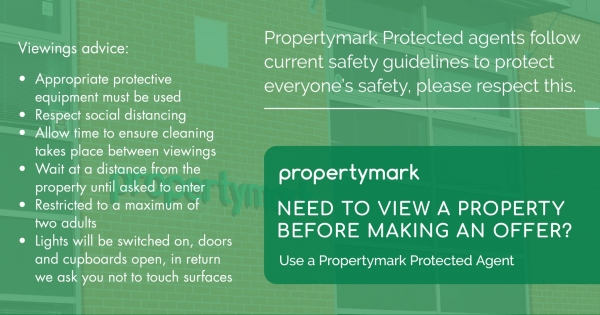Buying property opens up a whole new world of jargon!
Below, we have listed all abbreviations and terminology that you will see pop up. Here's what they mean!
- APR: Annual Percentage Rate – a basic rate of interest.
- Arrangement Fee: A charge made to arrange a loan, covering things like administration and management fees. IFSs are legally bound to disclose their fees, as are stockbrokers.
- Auction: This is when a property is not being advertised through normal sale conditions but will instead take bids and the highest bid will take it. Sometimes owners can stop auctions when a bid has been reached, they are happy with. A set date will be in place for this auction to take place and various T & C’s will apply.
- Bankruptcy: This is a legal process through which people or other entities who cannot repay debts to creditors may seek relief from some or all their debts. In most areas, bankruptcies are imposed by a court order, often initiated by the debtor.
- Buy to Let: Buyers with enough funds for a deposit can buy properties and rent them out, which pays the mortgage and generates income.
- CCJ: This means County Court Judgement and is a type of court order in England, Wales and Northern Ireland that might be registered against you if you fail to repay money you owe. If you have made an agreement to pay this money but it is not fully repaid, the CCJ will show as active. If you have paid the amount in full, the CCJ will remain on your credit account for up to 4 years but will show as satisfied.
- Completion: This is when the sale has come to an end. The money has been passed onto the relevant parties through the solicitors and keys are authorised to be released. You WON’T be able to have your keys until completion has taken place and the solicitors have authorised your agent to release them to you.
- Contents Insurance: Protection for items in your home and your personal possessions, in case they are lost, stolen or damaged.
- Contract: A legal agreement between a buyer and a seller. It doesn’t always involve signing a piece of paper, so beware.
- Conveyance: When buying a house, the conveyancing process establishes exactly what your buying, checks all the legal documents, including title deeds, and carries out searches before completion. Best left to a solicitor or specialist conveyancer, unless you’re a legal eagle.
- Deeds: When signed, sealed (quite literally) and delivered during the completion phase of a house purchase, the title in the property passes to the new owner.
- Deposit: A down payment on a property or item to secure it against other purchasers. Usually calculated as a percentage of the purchase price.
- Disbursements: Costs such as stamp duty, Land registry fees & search fees charged to the acting conveyancer or solicitor but then paid for by the purchaser.
- EPC: This is the abbreviation for Energy Performance Certificate. It is as it states, a certificate to state the energy performance in a property. If you are selling your property you MUST have one of these done. Don’t worry, we can sort this for you! This certificate will be valid for 10 years and can be accessed on the EPC register online at any time once submitted.
- Equity: For homeowners, equity is the difference between the market value of the property and the amount still owed on the mortgage. So, effectively, the equity in your house is what you own, and your mortgage company owns the rest. If the mortgage is bigger than the current value of the home, the difference is called ‘negative equity’.
- Exchange: This is when solicitors have swapped contracts between parties and an agreed date has been set for money to handed over and keys released.
- Exchange of Contracts: The date upon which the signed contracts are exchanged between both parties solicitors. There is then a legal commitment between buyer & seller.
- Freehold: Ownership of both the property & the land it stands on.
- FTB: This is the abbreviation most agents, brokers and solicitors will use for First Time Buyers
- Ground Rent: Rent paid to the owner of freehold land by a person who has a lease.
- IVA: This means Individual Voluntary Arrangement is a formal alternative for an individual wishing to avoid bankruptcy. This will be an agreement made as a plan to help with paying off debt.
- Land Certificate: Document issued by the Land Registry to the owner of registered land as proof of ownership.
- Land Search: A formal application for an inspection of the Land
- Modern Auction: This is very similar to above except there won’t usually be an auction that takes place at a venue and will instead be held online. It is very much run like Ebay and bids can be made anytime from point of viewing to the last few seconds before auction close. The highest bid won’t always be the winning bid and again the owner can end the auction at any point they feel they have an acceptable price. T&C’s will apply.
- NHTS: This is the abbreviations most agents, brokers and solicitors will use for No House to Sell. Sometimes NTS - nothing to sell
- Non-Standard Construction: This is property that is built from materials that do NOT conform to the ‘standard’/common definition. Standard properties have brick or stones walls with a roof made of slate or tile. A non-standard construction is therefore anything that falls outside of this. Please be aware that not all mortgage lenders will lend on a property of non-standard construction. Always consult your broker before booking a viewing or offering on a property of this type of construction.
- Registry register: A certificate is issued showing the current situation of the land in question.
- SSTC: This means Sold Subject to Contract- meaning a property has had a sale agreed on it but contracts have not be signed or issued. You WON’T be able to view a property that has been labelled with this but, the sale is not yet completed.
- STB: This is the abbreviation most agents, brokers and solicitors will use for Second Time Buyers
- Leasehold: A type of ownership of property, where the property is held on a lease for a fixed period of time.
- Local Search: Questionnaire to a local authority by a purchaser’s solicitor to verify whether a property is affected by any pending planning proposals etc.
- Mortgage: A loan made against property.
- Mortgage Offer: Formal offer of a mortgage issued by a building society, bank or other lender after the survey.
- Mortgage Term: Period of time over which the mortgage loan is to be repaid.
- Office Copy Entries: Land Registry term for copies of registers & plans, officially marked, ‘office copy’.
- Ombudsman: A public servant who investigates and deals with complaints from individuals about their treatment by a range of businesses.
- Pre-contract Enquiries: Enquiries made by the purchaser’s solicitors to the vendor’s solicitors requiring information on the property being purchased prior to completion.
- Probate: When someone dies, an Executor has to obtain clearance to act before the assets can be transferred to those who will inherit. This process is normally called ‘getting probate’.
- Remortgage: Switching your mortgage from one lender to another without actually moving home. Competition in the market is fierce and it’s increasingly common to ‘test the market’ every few years, seeking a cheaper mortgage. Those who hop around from one special rate to another are affectionately called ‘rate tarts’.
- Repayment Mortgage: A mortgage where each month you pay some interest and some capital and the outstanding loan reduces over time.
- Retention: If essential repair work to a property is required the lender may retain a proportion of the mortgage until the remedial work is completed.
- PCM: This means per calendar month
- To Let: This means that a rental property is still available on the market and is available for viewings and applications. Please speak to your agent as some properties may be still advertised under this term but may be put ‘on hold’ due to high interest levels or circumstance changes.
- Let STC: This is when a property has been reserved for a tenant pending completed application and references. No viewings or further applications can be made on a property at this stage.
- STC: This means subject to contract
- Let Agreed: This is when the applications and referencing have been completed on a rental property and the property has now been rented to the agreed tenant.
- Permitted Occupier: This is an occupier of a rental property that is over the age of 18, has not been referenced but has been given permission by the landlord to live in the rental property.
- Let Only: This is when the property and its maintenance/inspections are being looked after by the landlord directly.
- Managed: This is when the property and its maintenance/inspections are being looked after by the agent for the landlord.
- GSC: This is the abbreviation used for Gas Safety Certificate and is what it says- a certificate to state you gas outlet and appliances are safe and meet regulations. You will need to have one of these every year.
- Stamp Duty Land Tax:
- Freehold sales and transfers: You can also use this table to work out the SDLT for the purchase price of a lease (the ‘lease premium’).
- Property or lease premium or transfer value:
- Up to £125,000
- The next £125,000 (the portion from £125,001 to £250,000)
- The next £675,000 (the portion from £250,001 to £925,000)
- The next £575,000 (the portion from £925,001 to £1.5 million)
- The remaining amount (the portion above £1.5 million)
- SDLT rate
- Zero
- 2%
- 5%
- 10%
- 12%
- Example: If you buy a house for £275,000, the SDLT you owe is calculated as follows:
- 0% on the first £125,000 = £0
- 2% on the next £125,000 = £2,500
- 5% on the final £25,000 = £1,250
- Total SDLT = £3,750
- Subject to Contract: Nothing is legally binding on either party until exchange of contracts.
- Survey: A check by the mortgage lender to make sure the property you are proposing to buy has been valued correctly.
- Tenure: The vendor’s title to a property.
- Title Deeds: In relation to property, these documents prove the right of ownership.
- Vacant Possession: This means that the property being offered will be vacant upon completion of the sale.
- Vendor: The person who is selling their property or land.






Share this with
Email
Facebook
Messenger
Twitter
Pinterest
LinkedIn
Copy this link